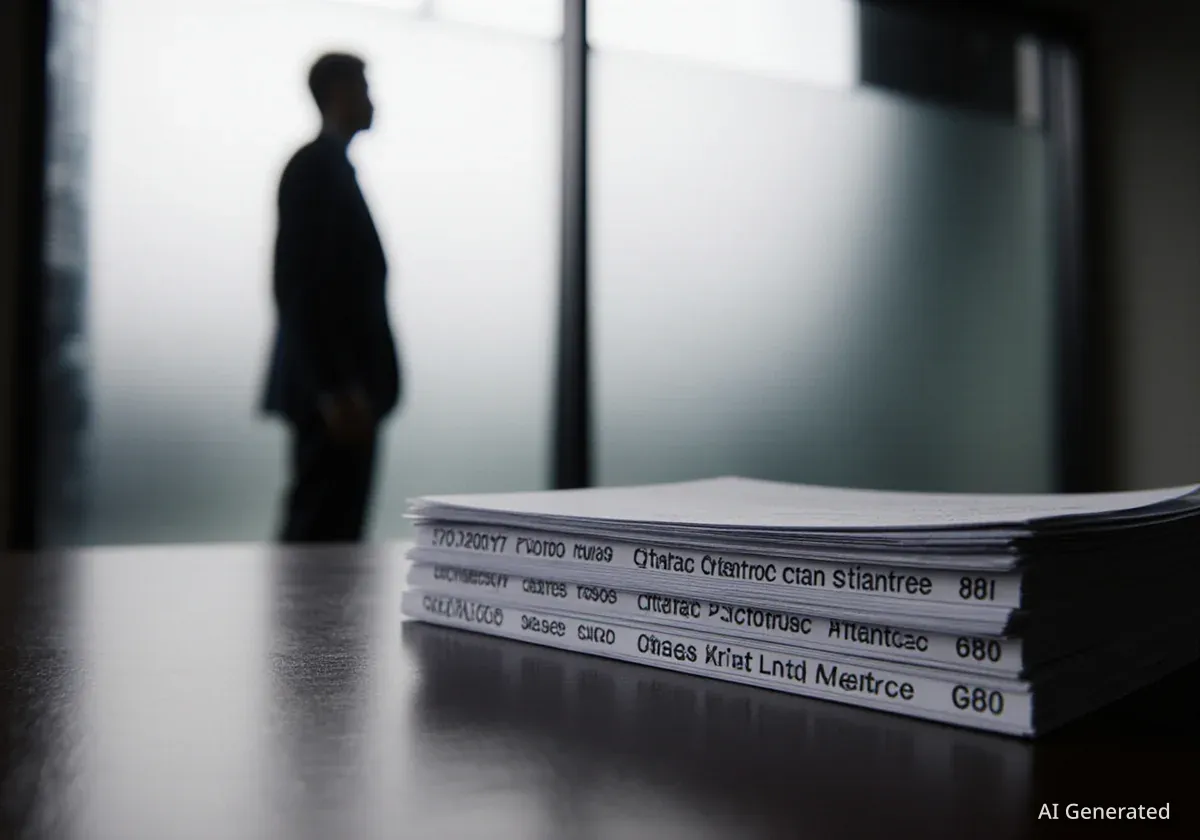Maine lawmakers are taking action against a growing wave of real estate scams by establishing a special commission to investigate deed fraud. The move comes in response to warnings from the FBI about an increase in such crimes across the Northeast, where criminals fraudulently sell vacant land they do not own.
The newly formed commission is scheduled to hold its first public meeting on Monday morning in Augusta. Its primary goal is to understand the extent of the problem in Maine and develop strategies to protect property owners.
Key Takeaways
- Maine has created a state commission to investigate real estate deed fraud.
- The FBI has warned of a significant increase in these scams throughout the Northeast.
- Deed fraud involves criminals forging property documents to illegally sell vacant land.
- The commission's first meeting will be held in Augusta and is open to the public.
- Many perpetrators operate from overseas, making them difficult for law enforcement to apprehend.
Understanding the Threat of Deed Fraud
Deed fraud is a sophisticated crime where a scammer forges a property deed, files it with the county's records office, and effectively transfers the property's title into their own name. Once they have apparent legal ownership, they can attempt to sell the property to an unsuspecting buyer or secure a loan against it.
According to law enforcement officials, criminals often target specific types of properties that are less likely to be monitored by their owners. These include vacant lots, vacation homes, rental properties, and properties where the owner is deceased. The lack of a regular presence at the property gives criminals time to execute the fraud without immediate detection.
How the Scam Works
The process typically involves several steps. First, scammers identify vulnerable properties using public records. They then forge the owner's signature on a new deed, often a quitclaim deed, and have it notarized, sometimes using fraudulent credentials. This forged document is then filed with the official county registrar, creating a seemingly legitimate record of a title transfer.
The FBI has noted that these criminal enterprises are increasingly operated by international networks. This global reach presents a significant challenge for local and federal investigators, as apprehending and prosecuting individuals located in other countries is a complex and lengthy process. This difficulty underscores the importance of preventative measures at the state and local levels.
Maine's Response to the Growing Problem
In response to the escalating threat, Maine's government has authorized a commission to conduct a thorough investigation. The group will convene for its inaugural meeting at the State House in Augusta at 10 a.m. on Monday. The session is open to the public, allowing concerned citizens and industry professionals to observe the proceedings.
The commission has a clear mandate: to gather comprehensive data on the prevalence and practice of deed fraud within the state. This will likely involve consulting with county registrars of deeds, real estate attorneys, title companies, and law enforcement agencies to build a complete picture of the situation.
Objectives of the New Commission
The commission's work will focus on several key areas:
- Data Collection: Quantifying the number of reported and suspected cases of deed fraud across Maine's counties.
- Procedural Review: Examining the current processes for recording deeds to identify potential vulnerabilities that criminals exploit.
- Public Education: Reviewing and developing educational materials to help property owners recognize and prevent fraud.
- Legislative Recommendations: Proposing new laws or regulations to strengthen protections against deed fraud, such as enhanced identity verification for property transfers.
By bringing together experts and stakeholders, the state hopes to create a multi-faceted strategy that combines stronger legal frameworks with increased public awareness.
Did You Know? Property fraud alert systems are becoming more common. These services, often offered for free by county clerk or registrar offices, notify homeowners via email or text message whenever a document is recorded against their property, allowing for early detection of fraudulent activity.
Protecting Your Property from Scammers
While lawmakers work on systemic solutions, property owners can take several proactive steps to protect themselves from becoming victims of deed fraud. Experts recommend a combination of vigilance and simple preventative measures.
"The international nature of these crimes makes prevention the most powerful tool we have," an FBI spokesperson recently stated. "Homeowners who actively monitor their property records are the first and best line of defense."
Recommended Steps for Homeowners
- Check Your Property Records: Periodically visit your county's registrar of deeds website or office to ensure that no unexpected documents have been filed against your property.
- Sign Up for Fraud Alerts: If your county offers a property fraud alert service, enroll immediately. This is one of the most effective ways to be notified of unauthorized activity.
- Secure Your Mail: Pay attention to your mail, especially property tax bills and other official notices. If you stop receiving them, it could be a sign that a scammer has changed the mailing address on your records.
- Be Wary of Unsolicited Offers: If you own vacant land, be skeptical of unsolicited cash offers to buy it, particularly if they seem too good to be true or pressure you for a quick sale.
- Consult Professionals: If you suspect any fraudulent activity, contact local law enforcement, the registrar of deeds, and a qualified real estate attorney without delay.
The Broader Economic Impact
Deed fraud does more than just harm individual property owners. It threatens the integrity of the entire real estate market by undermining the reliability of public property records, which are the bedrock of property ownership in the United States.
When a title is clouded by fraud, it can take years and significant legal expense to resolve. This creates uncertainty for buyers, sellers, lenders, and title insurance companies. A rise in such fraud can lead to higher costs for title insurance and more stringent verification processes, potentially slowing down legitimate real estate transactions.
The work of Maine's new commission is therefore not just about protecting individual assets but also about maintaining confidence in the state's real estate system. The findings and recommendations that emerge from its investigation could serve as a model for other states in the Northeast and across the country facing similar challenges.





